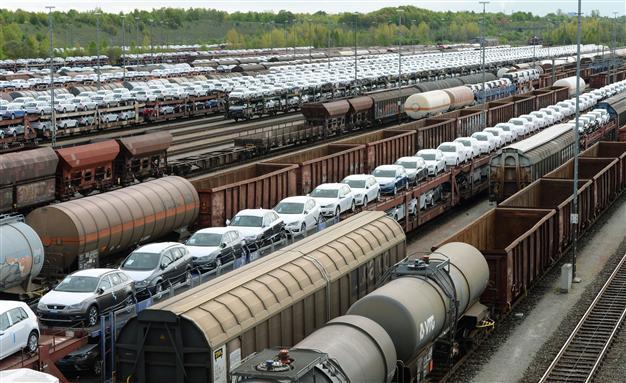Seven-day train drivers’ strike to hit German economy
BERLIN - Reuters

Freight trains wait at a freight depot in Munich, southern Germany, on May 4, 2015. AFP Photo
A seven-day strike by German train drivers could cost the German economy 500 million euros ($556.70 million), Germany’s DIHK Chambers of Commerce said on May 4.The strike, the eighth in a dispute between the GDL train drivers union and state-owned Deutsche Bahn over work conditions, starts on May 4 for freight trains and will be extended to passenger trains from May 5. The stoppages continue until May 10.
The strike could create supply chain difficulties for German companies, DIHK President Eric Schweitzer said.
“Warehouses will empty out, production will stutter, production may even come to a halt,” Schweitzer said.
Economists at Unicredit forecast the strike could knock 0.1 percentage points off gross domestic product (GDP) in the second quarter. Analyst Andreas Rees currently expects German economic growth of 0.5 percent in the quarter.
German chemicals and steel companies are among those most affected by the strike. Around 200,000 tons of steel products are transported by rail each day, the German steel federation said.
ThyssenKrupp, which mainly transports its products via rail and ship, said it was looking at alternatives. However, given the large volumes it transports between its plants via rail, the amount it could easily put on other forms of transport was limited, it said in a statement.
On May 4, union GDL said Deutsche Bahn had used delaying tactics in the negotiations and that the union would not agree to mediation.
Union boss Claus Weselky said the union did not want its members to be forced onto the same labor agreement as negotiated for the members of rival union EVG, which sets out different conditions for certain types of driver.
“They’re trying to create a two-class workforce,” he told a press conference.
















